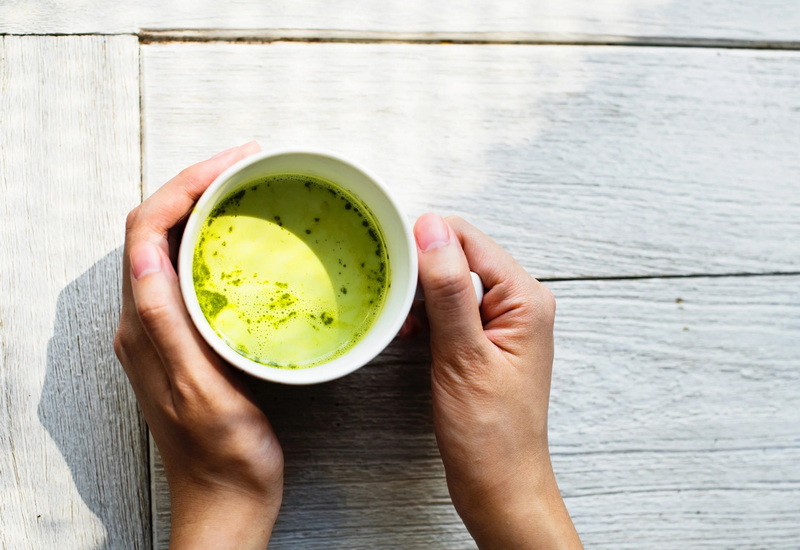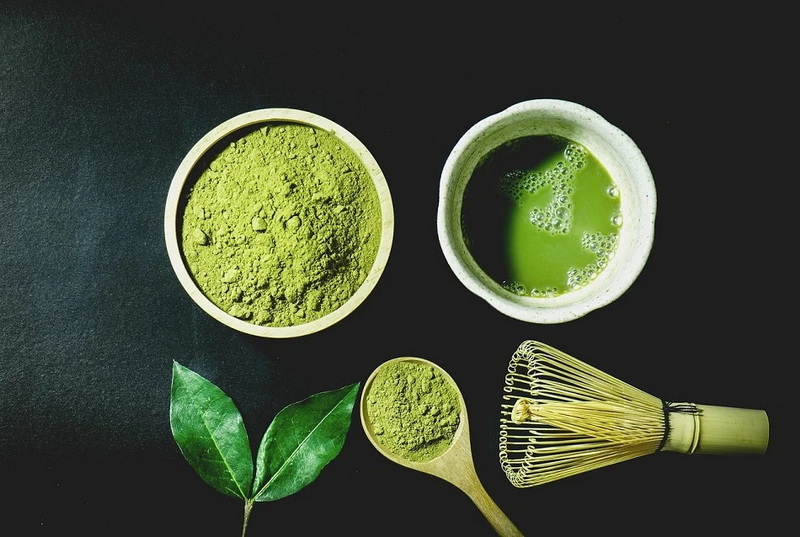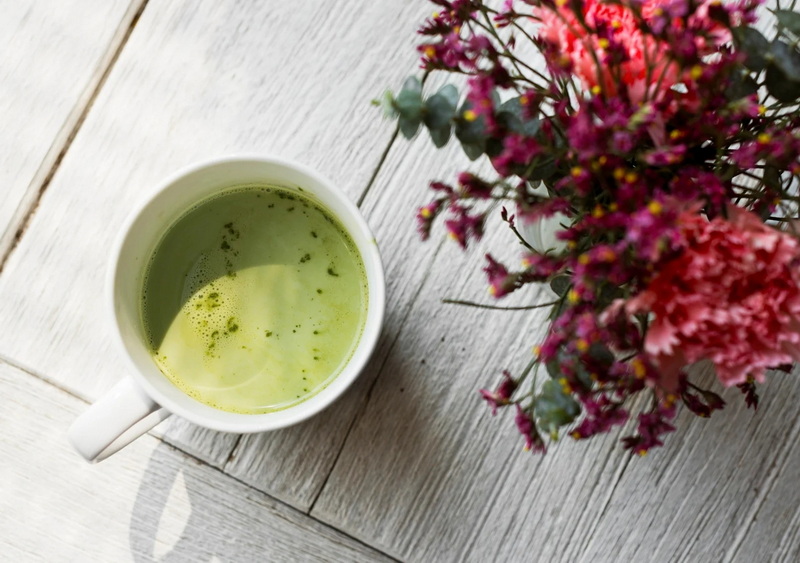Content Menu
● Introduction to L-Theanine and Caffeine
>> L-Theanine
>> Caffeine
● Cognitive Effects of L-Theanine and Caffeine
>> L-Theanine's Cognitive Effects
>> Caffeine's Cognitive Effects
● Synergistic Effects of L-Theanine and Caffeine
● Comparison of Green Tea and Coffee
● Therapeutic Potential of L-Theanine and Caffeine
● Lifestyle and Dietary Considerations
● Conclusion
● FAQs
>> 1. What are the primary cognitive benefits of L-theanine?
>> 2. How does caffeine affect cognitive performance?
>> 3. What are the synergistic effects of combining L-theanine and caffeine?
>> 4. How does green tea compare to coffee in terms of cognitive benefits?
>> 5. Can L-theanine and caffeine be used therapeutically for cognitive impairments?
● Citations:
In recent years, the debate about which substance is more effective for enhancing mental clarity—green tea's L-theanine or caffeine—has gained significant attention. Both compounds are well-known for their cognitive benefits, but they work in different ways. This article will delve into the effects of L-theanine and caffeine on mental clarity, exploring their mechanisms, benefits, and potential synergies.

Introduction to L-Theanine and Caffeine
L-Theanine
L-theanine is a non-protein amino acid found primarily in green tea. It is known for its ability to promote relaxation, reduce stress levels, and improve focus without causing drowsiness. L-theanine can induce a state of calm alertness by influencing neurotransmitter levels in the brain, such as dopamine, serotonin, and GABA, which are associated with mood regulation and cognitive function.
Caffeine
Caffeine is a stimulant found in coffee, tea, and many energy drinks. It enhances alertness, reduces fatigue, and improves cognitive performance by blocking adenosine receptors in the brain, thereby increasing the activity of neurotransmitters like dopamine and norepinephrine.
Cognitive Effects of L-Theanine and Caffeine
L-Theanine's Cognitive Effects
L-theanine has been shown to improve self-reported relaxation, tension, and calmness, starting at doses of 200 mg. It enhances focus and concentration by reducing mind-wandering and promoting a state of relaxed alertness. L-theanine also improves inhibitory control and reduces susceptibility to distracting information.
Caffeine's Cognitive Effects
Caffeine significantly improves performance on demanding cognitive tasks, such as sustained attention and memory, by enhancing alertness and arousal. These effects are noticeable even at low doses of 40 mg. However, caffeine can sometimes cause jitteriness and anxiety, especially in high doses.
Synergistic Effects of L-Theanine and Caffeine
When combined, L-theanine and caffeine can create a synergistic effect that enhances cognitive performance while mitigating some of caffeine's negative side effects. This combination improves attention-switching tasks, reduces distractions, and promotes a balanced state of alertness and relaxation.

Comparison of Green Tea and Coffee
Green tea, which contains both L-theanine and caffeine, offers a unique cognitive profile compared to coffee. While coffee provides a quick energy boost due to its caffeine content, green tea's combination of L-theanine and caffeine offers sustained focus and mental clarity without the jitteriness often associated with coffee.
Comparison of Green Tea and Coffee
| Feature | Green Tea | Coffee |
| Main Components | L-theanine, Caffeine, EGCG | Caffeine |
| Cognitive Effects | Promotes relaxation, focus, and sustained alertness | Enhances alertness, reduces fatigue |
| Side Effects | Generally calming, reduces caffeine's jitteriness | Can cause jitteriness, anxiety in high doses |
Therapeutic Potential of L-Theanine and Caffeine
Both L-theanine and caffeine have been explored for their potential therapeutic benefits in cognitive impairments. L-theanine may help reduce stress and improve mood, which can be beneficial for individuals with anxiety disorders. Caffeine, on the other hand, is sometimes used to enhance alertness in conditions like ADHD. The combination of L-theanine and caffeine might offer a balanced approach to managing cognitive symptoms by providing sustained focus without excessive stimulation.
Lifestyle and Dietary Considerations
Incorporating L-theanine and caffeine into one's lifestyle can be achieved through dietary choices. Drinking green tea is a natural way to consume both compounds, while also benefiting from other nutrients like EGCG. For those who prefer supplements, ensuring the quality and purity of L-theanine and caffeine products is crucial to maximize their cognitive benefits.
Dietary Sources of L-Theanine and Caffeine
| Source | L-Theanine Content | Caffeine Content |
| Green Tea | High | Moderate |
| Black Tea | Moderate | Higher |
| Coffee | None | High |
Conclusion
In conclusion, while both L-theanine and caffeine have cognitive benefits, the combination of these compounds in green tea provides a unique advantage for mental clarity. L-theanine's ability to promote relaxation and focus, combined with caffeine's stimulating effects, creates a synergistic relationship that enhances cognitive performance without the negative side effects often associated with caffeine alone.

FAQs
1. What are the primary cognitive benefits of L-theanine?
L-theanine is known for promoting relaxation, reducing stress, and improving focus without causing drowsiness. It enhances cognitive function by reducing mind-wandering and promoting a state of calm alertness.
2. How does caffeine affect cognitive performance?
Caffeine improves alertness, reduces fatigue, and enhances performance on demanding cognitive tasks. However, it can cause jitteriness and anxiety in high doses.
3. What are the synergistic effects of combining L-theanine and caffeine?
The combination of L-theanine and caffeine improves attention-switching tasks, reduces distractions, and promotes a balanced state of alertness and relaxation. This synergy mitigates some of caffeine's negative side effects.
4. How does green tea compare to coffee in terms of cognitive benefits?
Green tea offers a sustained cognitive boost with its combination of L-theanine and caffeine, providing focus and mental clarity without the jitteriness often associated with coffee. Coffee, on the other hand, provides a quick energy boost but can lead to side effects like anxiety in high doses.
5. Can L-theanine and caffeine be used therapeutically for cognitive impairments?
Research suggests that the combination of L-theanine and caffeine may be beneficial for improving cognitive functions in conditions like ADHD, enhancing sustained attention and inhibitory control.
Citations:
[1] https://pubmed.ncbi.nlm.nih.gov/28056735/
[2] https://pubmed.ncbi.nlm.nih.gov/21040626/
[3] https://pubmed.ncbi.nlm.nih.gov/18681988/
[4] https://pmc.ncbi.nlm.nih.gov/articles/PMC8794723/
[5] https://www.nature.com/articles/s41598-020-70037-7
[6] https://pmc.ncbi.nlm.nih.gov/articles/PMC4480845/
[7] https://www.womenshealthpractice.com/which-perks-your-brain-up-better-green-tea-or-coffee/
[8] https://www.sciencedirect.com/science/article/pii/S0022316622099126
[9] https://tucsontea.com/blogs/tea-tips/the-tranquil-brew-unveiling-the-l-theanine-advantage-in-tea-over-coffee
[10] https://www.nature.com/articles/s41598-024-59383-y






























